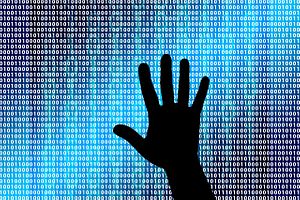On the first day of 2019, Vietnamese dissidents, human rights activists, and bloggers weren’t celebrating – they were worrying about the new cybersecurity law that went into effect that same day in Vietnam.
Vietnam has a high proportion of internet users, and there are around 53 million people with social media accounts. It has been claimed that the new law will help the Vietnamese regime to silence its critics. From January 2019, the authorities will force technology giants such as Google and Facebook to hand over potentially vast amounts of data, including personal information, and to censor user posts.
Some observers say that the law is similar to China’s cybersecurity legislation. Like China, Vietnam is a one-party state, and the ruling Communist Party is the force leading the state and society.
In the past the Vietnamese authorities has set up firewalls to prevent readers from accessing sites perceived to spread anti-propaganda against the state. These included sites come from international human rights organizations and international news outlets.
Clare Algar, Amnesty International’s director of global operations, criticized the new law: “This decision has potentially devastating consequences for freedom of expression in Viet Nam. In the country’s deeply repressive climate, the online space was a relative refuge where people could go to share ideas and opinions with less fear of censure by the authorities”
Brad Adams, Asia director at Human Rights Watch, said that “the goal of Vietnam’s proposed cybersecurity law appears as much to protect the party’s monopoly on power as to protect network security.”
According to Human Rights Watch, the human rights situation in Vietnam worsened significantly in 2018 and the persecution of political activists intensified, with some activists receiving very long prison terms. For example, it was reported in April 2018 that the chief judge in Hanoi had sentenced members of the Brotherhood for Democracy Le Thu Ha, Truong Minh Duc, Nguyen Bac Truyen, pastor Nguyen Trung Ton, and Pham Van Troi, to nine years, 12 years, 11 years, 12 years and seven years’ imprisonment respectively under Article 79 of the Criminal Code.
The Vietnamese regime is increasingly cracking down against online dissidents and human rights activists. It was reported that Google and Facebook in Vietnam have removed 3,367 postings which contained “sensitive” content against the Vietnamese Communist Party after being requested to do so by the Vietnam Ministry of Information and Communications. Facebook has removed more than 600 accounts that posted negative content against the state.
In April 2018 more than 50 human rights activist and dissidents in Vietnam wrote to the chief executive of Facebook, Mark Zuckerberg, and accused Facebook of cooperating with communist authorities to take down and suspend accounts. Being a dissident in Vietnam has long been a lonely path and if the technology giants continue to collaborate with the authorities, dissidents will find it even harder to speak out.
The law is just a new tool for the Communist Party to tighten media censorship over the dissidents and human rights activists, says Nguyen Van Dai, a human rights lawyer and ex-political prisoner. He established the Brotherhood for Democracy, an organization aiming to promote freedom of speech, human rights, and a peaceful political change to a multiparty democracy in Vietnam. He was sentenced to 15 years in jail and give years’ house arrest at a court in Hanoi last year. Two months later, the Vietnamese regime exiled him to Germany. However, on his Facebook page, which attracts a lot of friends and followers, he has encouraged activists not to be afraid of the state, and to keep fighting as if the new law has not been introduced.
Although the Party’s policies remain committed to socialism, the country’s economy has grown steadily capitalist in recent years. The Vietnamese Communist leadership wants to run the country with a flexible policy. Unlike China, the country will not close down websites and will allow technology giants take part and play their role in the emerging digital economy. Vietnam officially become the seventh member of the Comprehensive and Progressive Trans-Pacific Partnership (CPTPP) in 2018. That illustrates Vietnam’s commitment to integrate with the international community and to respond to changes of the global economy.
Despite big efforts to integrate the country into the global economy, Vietnam’s national laws lack meaningful privacy protections for their citizens. This cybersecurity law would make it easier for the government to identify and prosecute human rights activists and dissidents who express different and challenging views from the authorities.
Activist and dissidents have a tough year ahead with this law now in effect.
Thoi Nguyen is a member of Chatham House and a member of Amnesty International UK.

































